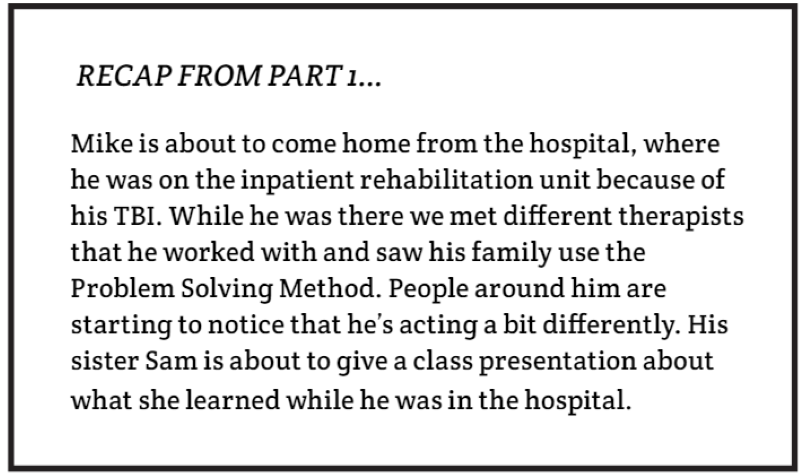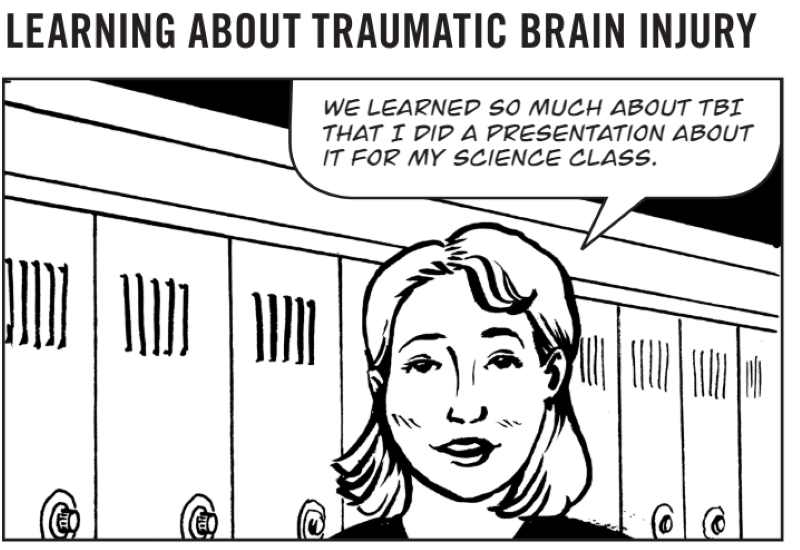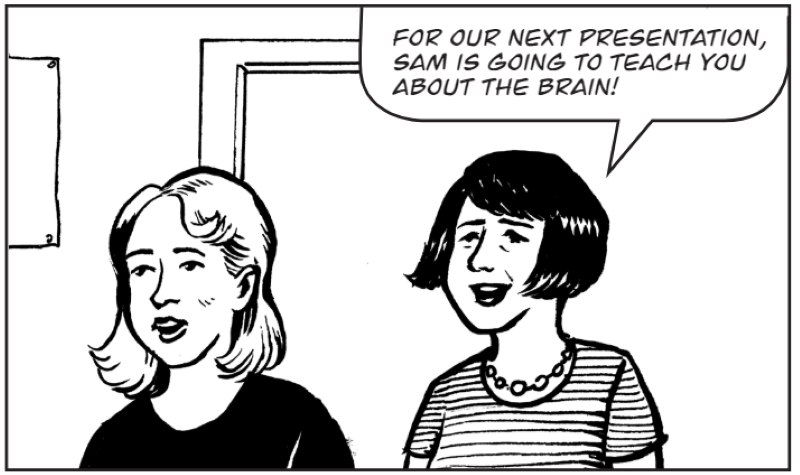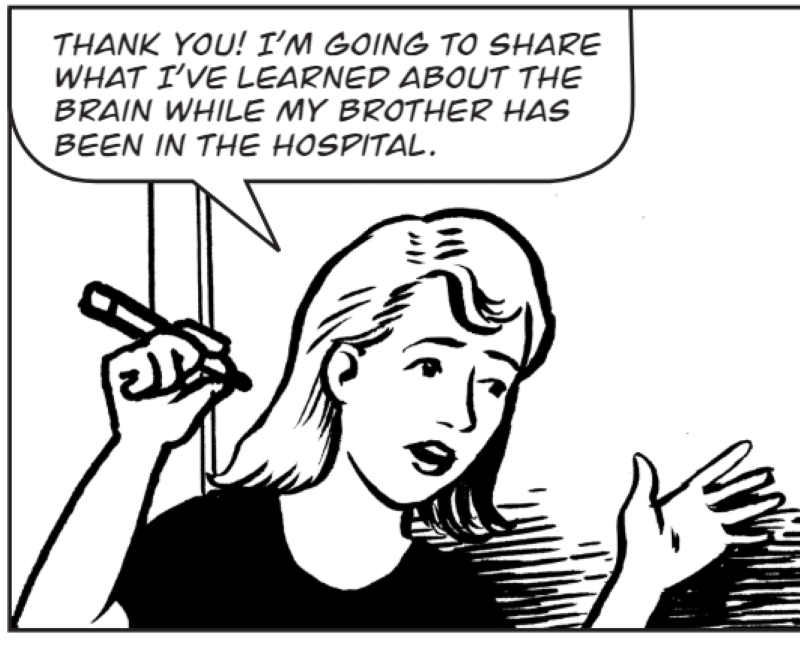People with TBI move through many stages of recovery after their injury. When TBI patients return home after their injury, they may face some unique challenges. Home life after TBI can be overwhelming or difficult, for both patients and their families and caregivers.
This infocomic, the second in a 3-part series, follows a TBI patient as he returns home from the hospital. It offers many suggestions on how avoid overwhelming a person with TBI, including the following:
- Limit the number of visitors
- Have one person speak at a time
- Use short sentences and simple words
- Use a calm soft voice
- Keep stimulation to one sense at a time
- Avoid crowded places





Information Source of Understanding TBI: Part 2 Infocomic
Part 2 of the Understanding TBI infocomic series is based on the Understanding TBI factsheet series. This factsheet series was developed by Thomas Novack, PhD, and Tamara Bushnik, PhD, in collaboration with the Model System Knowledge Translation Center.
Related Resources about Understanding TBI
Find out more by checking out the resources on our Understanding TBI page.